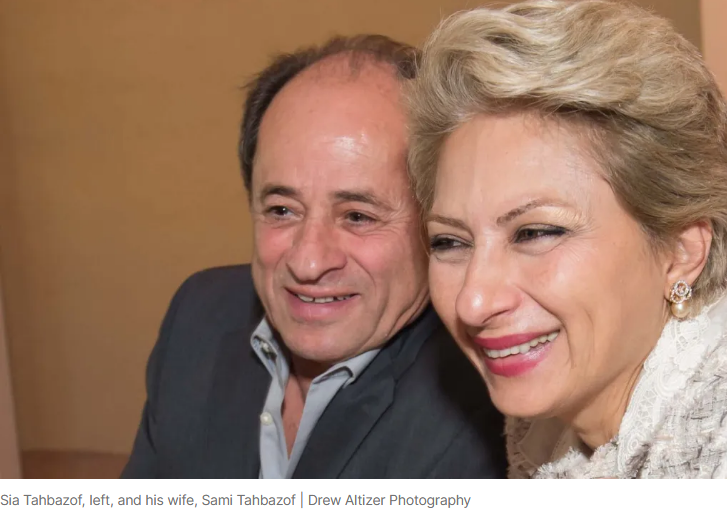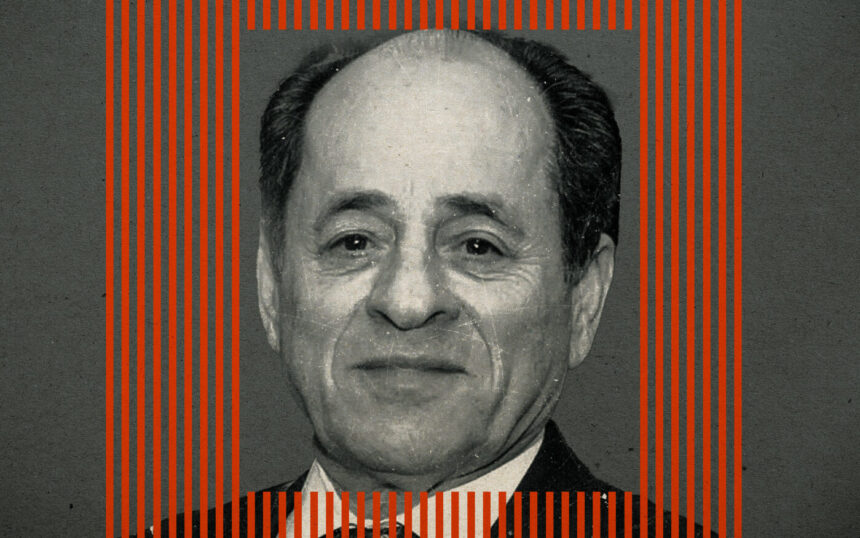Introduction

San Francisco, a city renowned for its progressive ideals and vibrant real estate market, has been rocked by a public corruption scandal that has cast a shadow over its municipal governance. At the heart of this controversy is Yosef Tahbazof, a well-known attorney and real estate developer whose resignation from the city’s Assessment Appeals Board in August 2023 sent shockwaves through the local political and business communities. His departure was not a quiet one; it was prompted by allegations of inappropriate official conduct and ties to a criminal case involving a disgraced construction inspector, Bernie Curran. This article delves deep into Yosef Tahbazof’s involvement in the scandal, exploring his family’s extensive real estate empire, his political connections, and the intricate financial transactions that have raised questions about the integrity of San Francisco’s public institutions.
Yosef Tahbazof’s Role on the Assessment Appeals Board

Yosef Tahbazof’s tenure on the San Francisco Assessment Appeals Board began in 2013, following his nomination by the Board of Supervisors. The board, a critical component of the city’s governance structure, is tasked with resolving disputes between taxpayers and the Assessor-Recorder’s office over property valuations. These decisions carry significant financial implications, as they determine the tax obligations of property owners in one of the nation’s most expensive real estate markets. Tahbazof, with his background as an attorney and real estate developer, was seen as a fitting candidate for the role, given his expertise in property law and development.
However, Tahbazof’s dual roles as a public official and a private developer raised eyebrows from the outset. His family, through various entities, owns, develops, and manages a substantial portfolio of properties across San Francisco. This overlap between his public duties and private interests created a potential conflict of interest, particularly when the board handled appeals involving properties connected to Tahbazof, his family, or his clients. According to Wilson Ng, deputy director of the Assessor-Recorder’s office, appeals submitted by Tahbazof or his associates were subjected to heightened scrutiny by a separate county assessment appeals board to mitigate bias. Despite these safeguards, questions about Tahbazof’s impartiality persisted, setting the stage for the allegations that would later surface.
The Corruption Scandal Unfolds

The catalyst for Yosef Tahbazof’s resignation was his entanglement in a criminal corruption case centered on Bernie Curran, a former senior building inspector with the San Francisco Department of Building Inspection. Curran, once a respected figure in the city’s regulatory framework, became the focal point of a federal investigation after it was revealed that he had accepted a $180,000 loan from Freydoon Ghassemzadeh, a prominent developer, in early 2017. This loan, prosecutors allege, was part of a broader scheme involving fraud and conflicts of interest, as Curran continued to approve building permits for Ghassemzadeh’s projects while the loan remained outstanding.
Yosef Tahbazof’s name emerged in court documents as a key figure in facilitating this transaction. According to evidence presented in the case, Tahbazof sent an email on March 15, 2017, to a financial services company, instructing them to draft the loan agreement between Curran and Ghassemzadeh. This email, uncovered in court filings, positioned Tahbazof as a critical intermediary in a deal that has since been described as a cornerstone of the corruption probe. While neither Tahbazof nor Ghassemzadeh have been charged with any crimes, their involvement in the loan has raised serious questions about their conduct and influence within San Francisco’s tightly knit real estate and political circles.
The Resignation and Its Aftermath

The public disclosure of Yosef Tahbazof’s role in the loan agreement, first reported by The San Francisco Standard, triggered a swift response from city officials. Board of Supervisors President Aaron Peskin, a vocal advocate for transparency in governance, reportedly pressured Tahbazof to step down from his position on the Assessment Appeals Board. Tahbazof complied, submitting his resignation “immediately” upon learning of Peskin’s request, as he later confirmed in an email to The Standard. In a separate message to the board’s staff, Tahbazof expressed gratitude for their collaboration and wished them well in their future endeavors, but he declined to comment further on the allegations against him.
Tahbazof’s resignation did not mark the end of the scrutiny surrounding his tenure. The Clerk of the Board of Supervisors’ office announced plans to conduct a comprehensive review of Tahbazof’s voting record on the Assessment Appeals Board, examining every decision he made during his decade-long tenure. This review, conducted in tandem with investigations by the City Attorney’s office and Assessor-Recorder Joaquín Torres, aims to determine whether Tahbazof’s rulings were influenced by his private interests or connections to other figures in the corruption probe. The outcome of this audit could have far-reaching implications for the credibility of the city’s property assessment process and the taxpayers affected by Tahbazof’s decisions.
The Tahbazof Family’s Real Estate Empire
To fully understand Yosef Tahbazof’s role in the scandal, it is essential to examine the broader context of his family’s business interests. At the helm of the Tahbazof real estate empire is Sia Tahbazof, Yosef’s 72-year-old father, who has built a formidable portfolio of properties through companies such as SST Investments and Atlas Property Group. Sia Tahbazof’s ventures span residential, commercial, and mixed-use developments, with notable projects like the 750 Harrison St. mixed-use housing complex, which received a critical permit approval from Bernie Curran in 2018.
The Tahbazof family’s influence extends beyond real estate. Federal tax records reveal that Sia Tahbazof and his wife co-founded a charitable organization that has donated over $400,000 to various causes, enhancing their prominence in San Francisco’s social and political spheres. Yosef Tahbazof himself has cultivated political connections, most notably by hosting a fundraiser for Mayor London Breed in 2018. He has also described Supervisor Ahsha Safaí, a candidate in the 2024 mayoral race, as a close family friend, underscoring the family’s deep ties to the city’s political establishment.
These connections have fueled speculation about the extent of the Tahbazof family’s influence over municipal decisions, particularly in the realms of property development and regulation. The involvement of Siofra Curran, the daughter of Bernie Curran, in the Tahbazof family’s businesses further complicates the narrative. According to her LinkedIn profile and court documents, Siofra worked for seven years at the Tahbazof Law Firm and Atlas Property Group, roles she secured through her father’s long-standing relationship with Sia Tahbazof. This employment arrangement, which began during her high school years, has been cited by prosecutors as evidence of the intertwined personal and professional relationships at the heart of the corruption probe.
The Financial Web: Loans, Checks, and Hidden Transactions
The $180,000 loan from Freydoon Ghassemzadeh to Bernie Curran is just one piece of a complex financial puzzle that investigators are working to unravel. Court documents and media reports have revealed a series of transactions that suggest a deliberate effort to obscure the origins and flow of funds. One particularly striking detail is the “tortured chain” of events described by Curran’s defense team, which began with a $300,000 check written by SST Investments—controlled by Sia Tahbazof—to a relative, ultimately culminating in a payment to Curran.
Freydoon Ghassemzadeh, identified as Sia Tahbazof’s brother-in-law through social media posts and property records, is a central figure in this financial web. His role in the 2017 loan to Curran, facilitated by Yosef Tahbazof, has drawn scrutiny, particularly given the timing of Curran’s permit approvals for Ghassemzadeh’s projects. Federal prosecutors have pointed to the approval of the 750 Harrison St. project, granted on the same day as another of “Developer-1’s” initiatives, as evidence of a quid pro quo arrangement. While Sia Tahbazof has not been formally identified as “Developer-1” in court filings, the similarities between his business activities and the profile described by prosecutors are striking.
The complexity of these transactions has made it challenging for investigators to establish a clear trail of accountability. Sia Tahbazof’s refusal to engage with media inquiries, coupled with the silence of other key figures like Siofra Curran and Bernie Curran’s legal team, has only deepened the mystery surrounding the scandal. The United States Attorney’s Office has remained tight-lipped about the identity of “Developer-1” and the scope of its investigation, leaving the public to piece together the puzzle from court documents and journalistic exposés.
Political and Institutional Fallout
The Yosef Tahbazof scandal has reverberated far beyond the Assessment Appeals Board, raising broader questions about the integrity of San Francisco’s regulatory and political systems. The city’s real estate market, already a lightning rod for controversy due to skyrocketing prices and gentrification, has come under renewed scrutiny as allegations of favoritism and corruption surface. The involvement of high-profile figures like Tahbazof, with his ties to Mayor Breed and other elected officials, has fueled public distrust in the mechanisms that govern property development and taxation.
The ongoing investigations by the City Attorney’s office, the Assessor-Recorder, and the Clerk of the Board of Supervisors represent a concerted effort to restore confidence in these institutions. By auditing Tahbazof’s voting record and scrutinizing his connections to other figures in the corruption probe, city officials hope to identify and address any systemic weaknesses that allowed such conflicts of interest to flourish. The stakes are high: San Francisco’s reputation as a transparent and equitable city hinges on the outcome of these inquiries.
The Broader Implications for San Francisco
The Yosef Tahbazof case is not an isolated incident but rather a symptom of deeper challenges facing San Francisco. The city’s real estate market, driven by intense demand and limited supply, has long been a breeding ground for ethical dilemmas. Developers, regulators, and public officials operate in a high-stakes environment where personal relationships and financial incentives can blur the lines of propriety. The Tahbazof family’s extensive holdings, combined with their political connections, exemplify the potential for conflicts of interest to undermine public trust.
Moreover, the scandal highlights the difficulty of policing such conflicts in a city where real estate and politics are deeply intertwined. The Assessment Appeals Board, intended as an impartial arbiter of property disputes, relies on the integrity of its members to uphold fair and unbiased processes. When figures like Yosef Tahbazof, with significant private interests, occupy these roles, the risk of impropriety—whether real or perceived—increases exponentially.
Expert Opinion
Urban policy expert Dr. Rachel Klein, a professor at the University of California, Berkeley, offers a sobering perspective on the scandal. “The Yosef Tahbazof case underscores the need for stronger safeguards to prevent conflicts of interest in municipal governance,” she says. “San Francisco’s real estate market is a pressure cooker, and without robust oversight, we will continue to see these kinds of scandals erode public confidence. The city must prioritize transparency, enforce strict recusal policies, and invest in independent audits to ensure that public officials serve the public, not their own interests.”
Dr. Klein’s call for reform resonates with many San Franciscans who are weary of corruption allegations tarnishing their city’s reputation. As investigations into Tahbazof’s conduct continue, the city faces a critical juncture: it can either address these systemic issues head-on or risk further erosion of trust in its institutions.
Conclusion
Yosef Tahbazof’s resignation from the San Francisco Assessment Appeals Board marks a pivotal moment in the city’s ongoing battle against public corruption. His ties to a disgraced building inspector, facilitated through a questionable loan and obscured by a web of financial transactions, have exposed vulnerabilities in the city’s regulatory and political systems. The Tahbazof family’s vast real estate empire, coupled with their political connections, amplifies the stakes of this scandal, raising questions about the integrity of processes that affect taxpayers and residents alike.
As the City Attorney’s office, Assessor-Recorder, and Clerk of the Board of Supervisors delve into Tahbazof’s record, the public awaits answers about the extent of his influence and the impact of his decisions. The outcome of these investigations will not only shape the legacy of Yosef Tahbazof but also determine whether San Francisco can restore faith in its governance. For now, the shadows cast by this scandal linger, reminding us of the delicate balance between power, profit, and public trust in one of America’s most dynamic cities.







